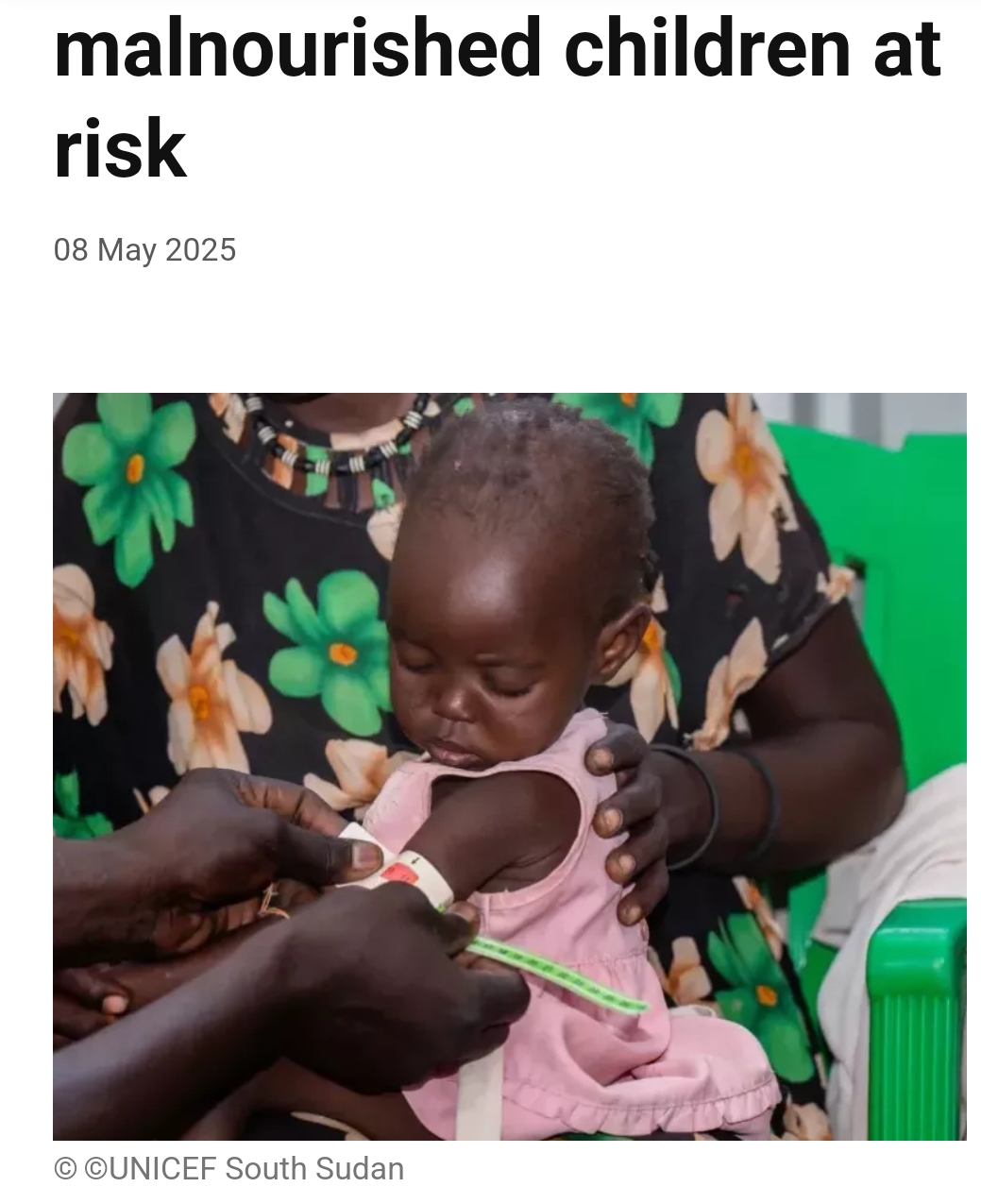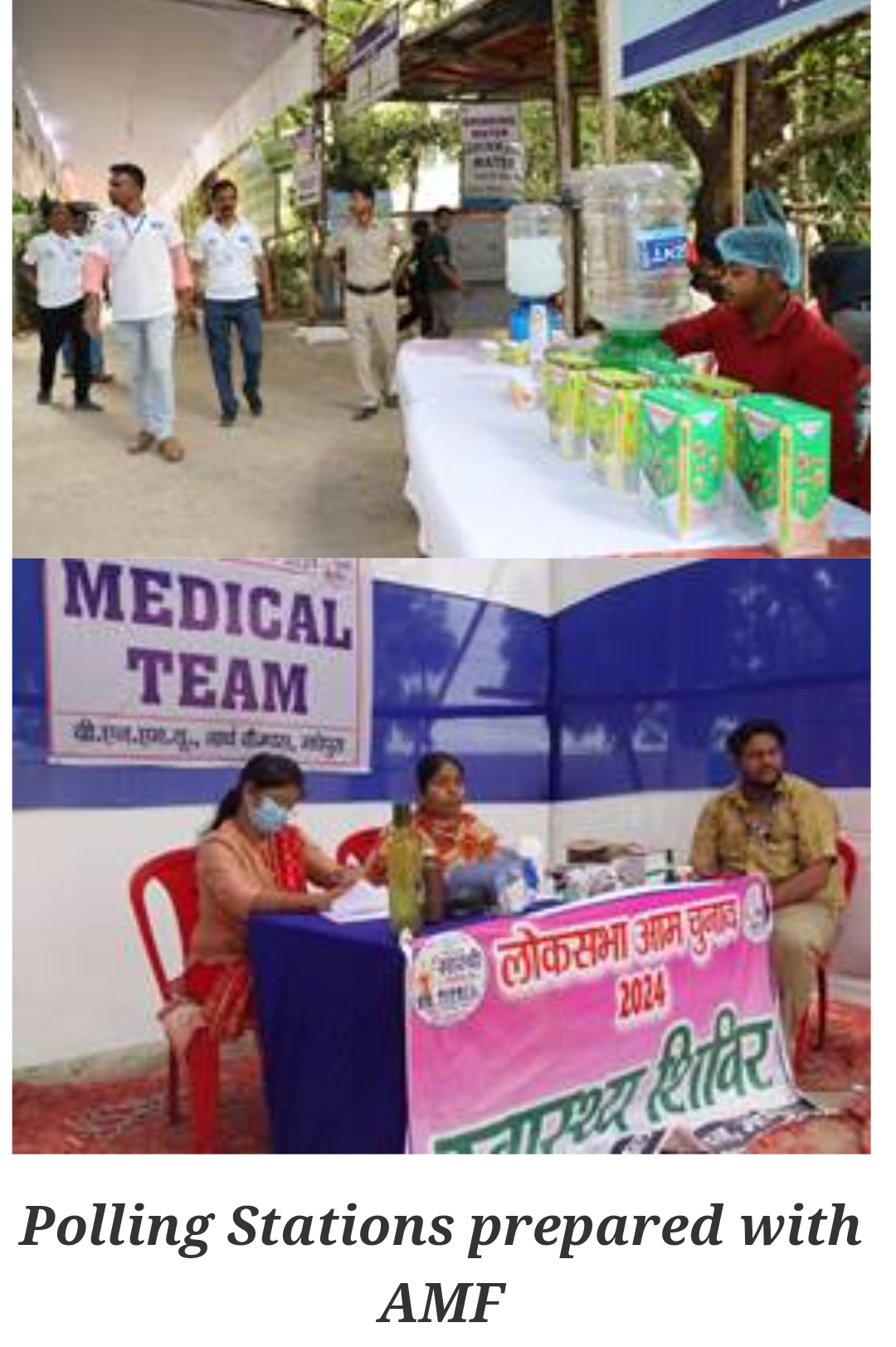Humanitarian Lifeline Cut in South Sudan: Over 60,000 Malnourished Children at Risk in Upper Nile State.
JUBA:
A deepening humanitarian crisis is unfolding in South Sudan’s Upper Nile state as fighting along the White Nile river—a critical supply route—has forced a near-total halt of life-saving aid deliveries. The United Nations World Food Programme (WFP) and UNICEF have issued a dire warning that more than 60,000 severely malnourished children are at immediate risk as treatment supplies dwindle and insecurity obstructs vital resupply efforts.
For nearly a month, no humanitarian aid has reached Upper Nile, a region with some of the highest malnutrition rates in South Sudan. The White Nile river serves as the main artery for transporting emergency food and nutrition supplies, but renewed clashes have rendered it impassable. The situation is particularly alarming as the country enters its rainy season—a time when food insecurity and disease typically worsen, threatening the health and survival of already vulnerable populations.
“Children are already the first to suffer during emergencies,” said Mary-Ellen McGroarty, WFP’s Representative in South Sudan. “If we can’t get nutrition supplies through, we are likely to see escalating malnutrition in areas already at breaking point. Every day makes a difference for a malnourished child in need of life-saving treatment.”
In recent weeks, WFP and UNICEF have struggled to reach affected areas. In mid-April, barges carrying 1,000 metric tonnes of critical supplies were forced to turn back due to rising insecurity. Another 3,000 metric tonnes remain stranded in Bor, a humanitarian hub on the Nile, awaiting clearance to move.
Upper Nile has already seen over 300,000 cases of moderate and severe malnutrition among children in the past year. Now, humanitarian organizations estimate they will exhaust their remaining supplies by the end of May if access is not restored—effectively bringing nutrition treatment programmes to a halt and endangering tens of thousands of children currently receiving care.
Compounding the crisis is the looting of humanitarian supplies. Since the conflict escalated, nearly 2,000 cartons—approximately 26 metric tonnes—of life-saving nutrition products have been stolen, depriving nearly 1,900 children of essential treatment. Due to such threats, agencies are unable to preposition stock in insecure areas, fearing further loss of resources and exposure of health facilities to violence.
“We have reluctantly taken the unprecedented step of holding back supplies for fear that they will not reach the children that so desperately need them,” said Obia Achieng, UNICEF’s interim Representative in South Sudan. “If this continues, we are in danger of simply running out of supplies in counties across the state by the end of May 2025, with potentially catastrophic results for the youngest, most vulnerable children.”
Both WFP and UNICEF are urging all parties involved in the conflict to allow the safe passage of humanitarian convoys and guarantee unimpeded access to affected communities. Without immediate intervention, they warn, the situation threatens to reverse hard-won gains in the battle against malnutrition and place thousands of children on the brink of a humanitarian catastrophe.



